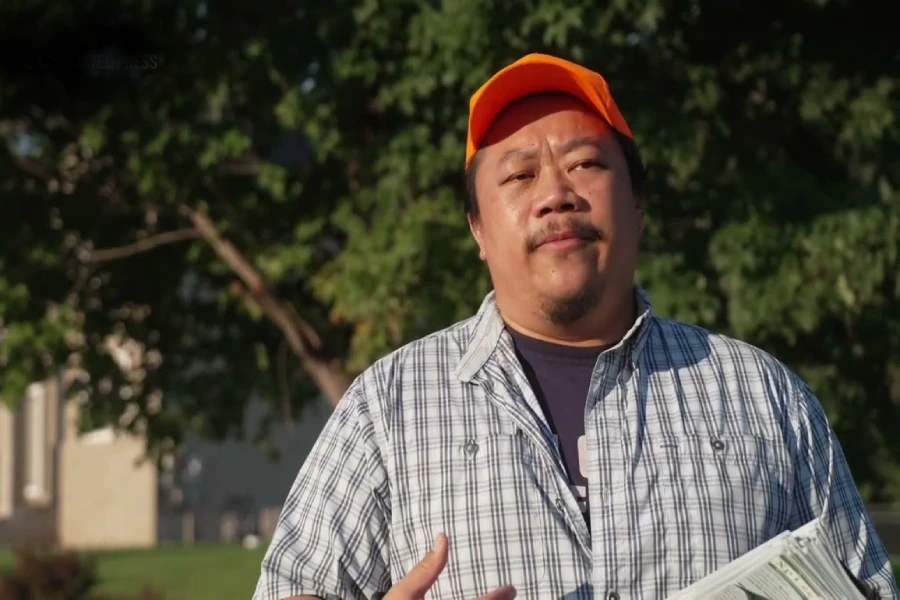The Minnesota special election results have captured national attention due to their unique political and legal implications. Following the tragic assassination of former Minnesota House Speaker Melissa Hortman and her husband, District 34B held a special election to fill the vacant seat. The victory of Democratic candidate Xp Lee has once again deadlocked the state House at 67–67, raising questions about legislative power-sharing, election law, and political violence.
This article provides a comprehensive analysis of the Minnesota special election results, exploring legal frameworks, constitutional protections, and the broader implications for state politics. It also addresses frequently asked questions to clarify the impact of this unusual electoral outcome.

Minnesota Special Election Results: How the House Deadlock Shapes State Politics
The latest Minnesota special election results tie the state House at 67–67 between Democrats and Republicans. Such a deadlock has significant legal and procedural consequences. Under Minnesota Statutes §204D.25, special elections are required to fill legislative vacancies, ensuring that constituents maintain representation.
When one district determines the balance of power, as in District 34B, it influences committee assignments, leadership roles, and legislative priorities. The Minnesota special election results demonstrate the critical role of legal procedures in maintaining fair representation. Power-sharing agreements are typically negotiated, ensuring functional governance even amid a tie.
Minnesota Special Election Results and the Legal Framework for Special Elections
Minnesota’s laws provide a structured approach to special elections. The Minnesota special election results illustrate how state statutes protect voters and candidates alike. Article IV, Section 4 of the Minnesota Constitution mandates timely elections to avoid leaving constituents unrepresented.
Federal constitutional principles, such as the Fourteenth Amendment, also intersect with state law, ensuring equal protection and fairness. Any irregularities in the conduct of special elections ballot access restrictions, late notifications, or voter disenfranchisement can be challenged in state or federal court. The Minnesota special election results highlight the need for transparency and strict compliance with both state statutes and constitutional safeguards.
Minnesota Special Election Results and Political Violence
The Minnesota special election results were held against the backdrop of political violence. Former Speaker Melissa Hortman and her husband were killed in what prosecutors called politically motivated attacks, followed by the assassination of conservative activist Charlie Kirk.
Minnesota Statutes §609.185 (first-degree murder) and §609.475 (impersonating law enforcement) provide the legal framework for prosecuting these crimes. The alleged gunman faces both state and federal charges, illustrating overlapping jurisdiction and the legal mechanisms designed to protect public officials.
These circumstances underscore the resilience of Minnesota’s election system. Despite threats and violence, the Minnesota special election results proceeded lawfully, reinforcing the constitutional right of citizens to vote and participate in government without intimidation (52 U.S.C. §10101).
Minnesota Special Election Results and Power Sharing Agreements
With the House tied, the Minnesota special election results necessitate a renewed power-sharing agreement. Such agreements, while political, have procedural and legal significance. Past Minnesota ties have included co-chair arrangements, shared committee leadership, and negotiated staff allocations.
These arrangements demonstrate how legislatures balance fairness and political strategy. Political scientists refer to them as “informal constitutional conventions” not legally binding in the statutory sense but respected due to mutual necessity. The Minnesota special election results thus serve as a precedent for handling tied legislatures, potentially influencing legislative practices in other states.
Minnesota Special Election Results: Policy and Legal Implications
The Minnesota special election results carry important policy and legal implications:
-
Election Security: Increasing the protection of candidates and voters, especially amid political violence.
-
Legislative Resilience: Ensuring continuity of governance despite ties and vacancies.
-
Legal Precedents: Reinforcing transparency in special elections and highlighting how statutory frameworks operate alongside constitutional protections.
Policymakers are considering measures such as expanding Minnesota’s “Safe at Home” program for public officials and strengthening penalties against threats or intimidation. For official election procedures, visit the Minnesota Secretary of State official elections page.
Conclusion
The Minnesota special election results offer a case study in how law, democracy, and politics intersect. From handling legislative deadlocks to protecting candidates amid violence, Minnesota demonstrates the importance of strong statutory frameworks, constitutional protections, and bipartisan cooperation. These results underline that democratic institutions can remain resilient even in volatile times, ensuring fair representation and upholding the rule of law.
FAQ
Q1: Why did the Minnesota special election results tie the state House?
A: The victory of Democratic candidate Xp Lee in District 34B restored the House to 67–67, matching Republicans’ seats and creating a legislative deadlock.
Q2: What legal mechanisms exist for tied state legislatures in Minnesota?
A: Minnesota House rules and past power-sharing agreements govern operations, including leadership rotation, committee co-chairs, and staff allocation. While these agreements are political, they have procedural significance.
Q3: How do political violence cases affect elections?
A: Minnesota law criminalizes violent acts against officials, including murder and impersonating law enforcement. Such cases can also invoke federal civil rights or terrorism statutes. Elections proceed under secure, lawful conditions to protect voter rights.
Q4: Are there constitutional protections for voters in special elections?
A: Yes. Both state and federal law guarantee equal protection, timely representation, and the right to participate in elections without intimidation. Courts can review violations in special election processes.
Q5: What does the Minnesota special election results mean for future elections?
A: They highlight the importance of clear legal frameworks, power-sharing agreements, and candidate protection measures. These results may influence legislative practices and election law policies nationwide.

